We got our first hint of the complications to come at the border crossing from Senegal into Guinea-Bissau. We must have arrived there at lunch time, or maybe during an emergency of some sort in a faraway city. Or maybe there’d been a zombie apocalypse. The border post was deserted, other than a group of 20-something local guys dancing to music blaring from one of their phones, and a few chickens scratching in the dust. The locals on our bus all piled out and stood around in the shade next to a desk so we joined them, wondering if the teenager dozing behind it was actually going to stamp us into the country.
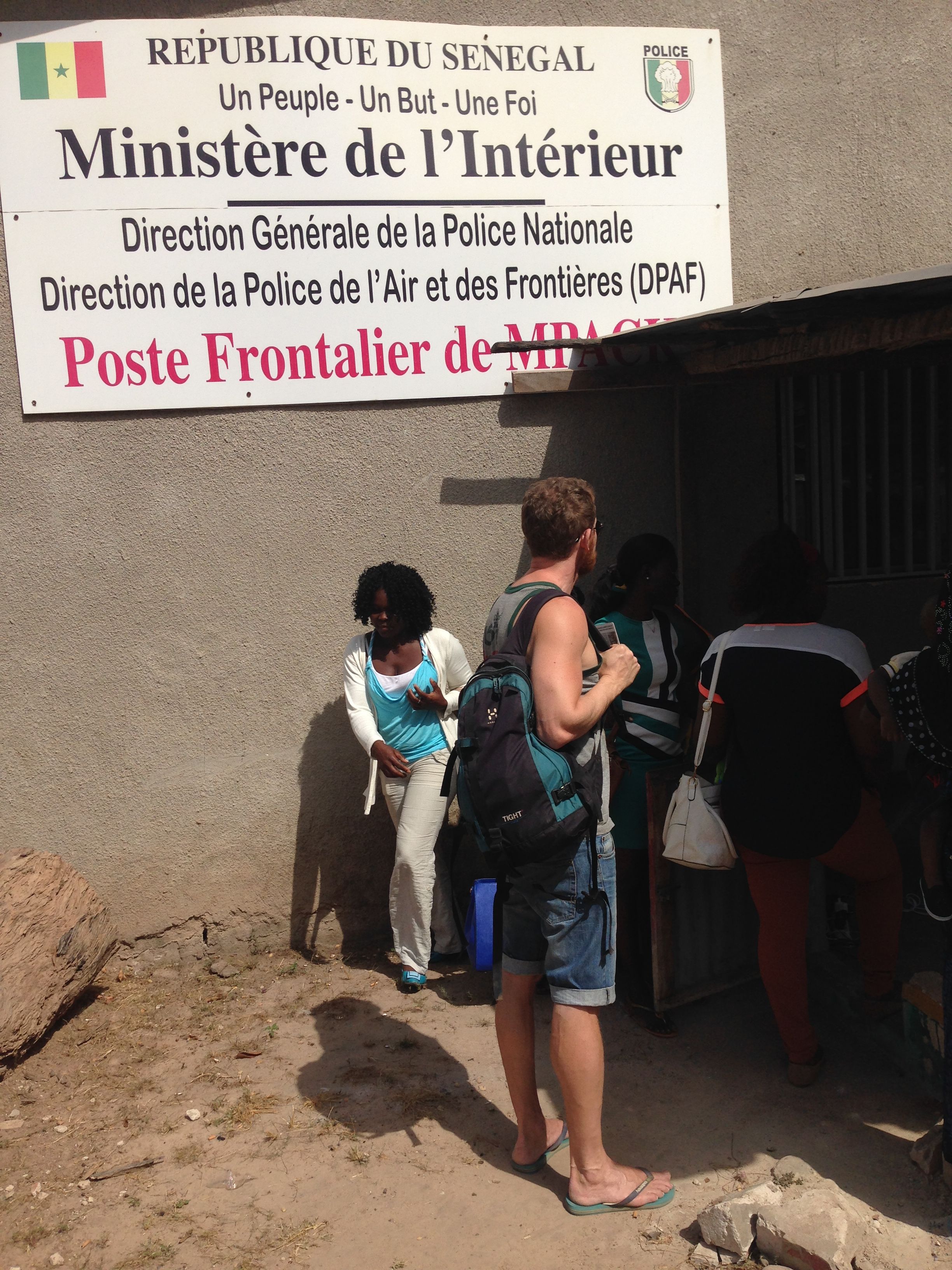
After 45 minutes of waiting and wondering if we should just stroll down the road a few more metres and cross illegally into Guinea-Bissau, a metal door around the corner of the building clanged open and the locals rushed it, and so did we.
There began a somewhat confusing sequence of queues and being waved around and dismissed by various officials and soldiers. An officer called out ‘Toubab!’ and pointed to my bag. I unpacked almost the entire contents before he was satisfied that I wasn’t carrying anything he could possibly demand a bribe for. A customs official pointed at a pair of handcuffs hanging on the wall, crossed his wrists tightly and then pantomimed being hauled off crying.
This is all probably fine if you speak French, Spanish, Portuguese or any other colonial European language, but Norway didn’t colonise anybody, and the Brits weren’t meddling (much) in this neck of the woods so it’s all Greek to us.
Back on the road our bus crawled slowly to the capital, Bissau. It was a beautiful drive, and my favourite kind – there are very few vehicles and the disastrous condition of the roads prevents drivers from otherwise driving much like a kamikaze pilot would fly a plane.
The old part of Bissau is a ghost town, an abandoned relic of the Portuguese colonial days left to disintegrate in the hot sun.
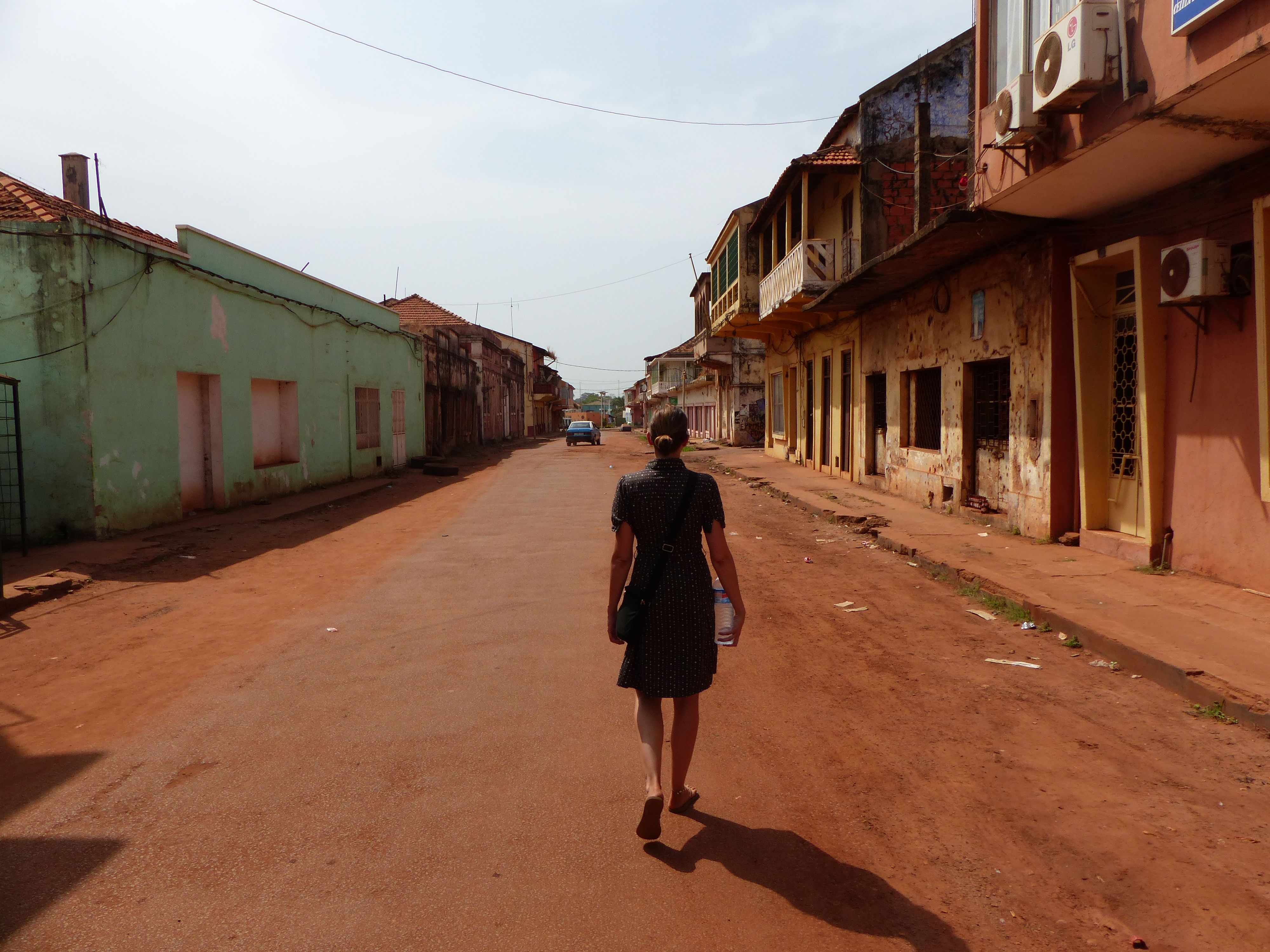
The streets are cracked and sandy and hulking vultures pick over piles of rubbish.
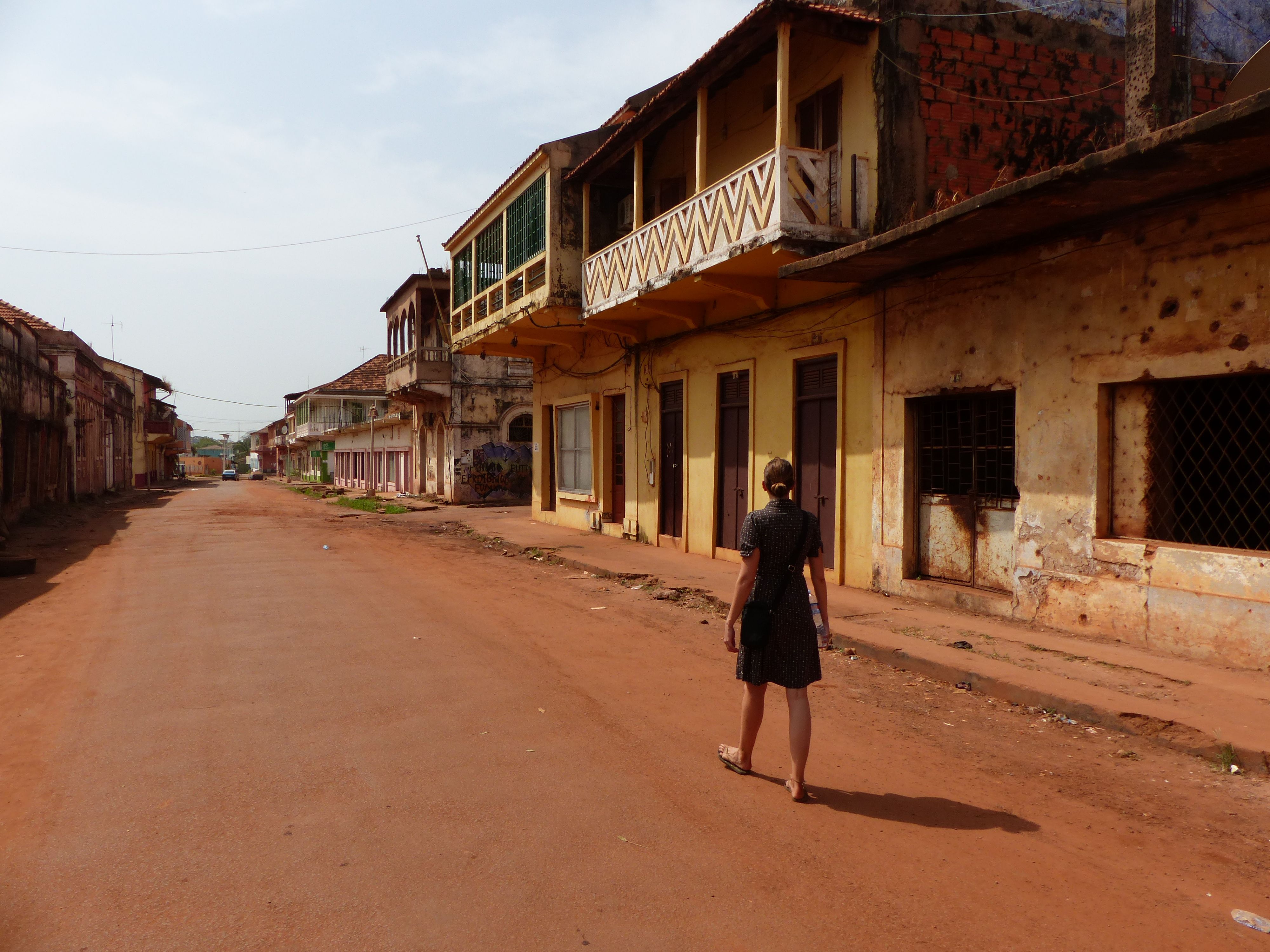
The new town is a bustling marketplace maze and a transport hub.
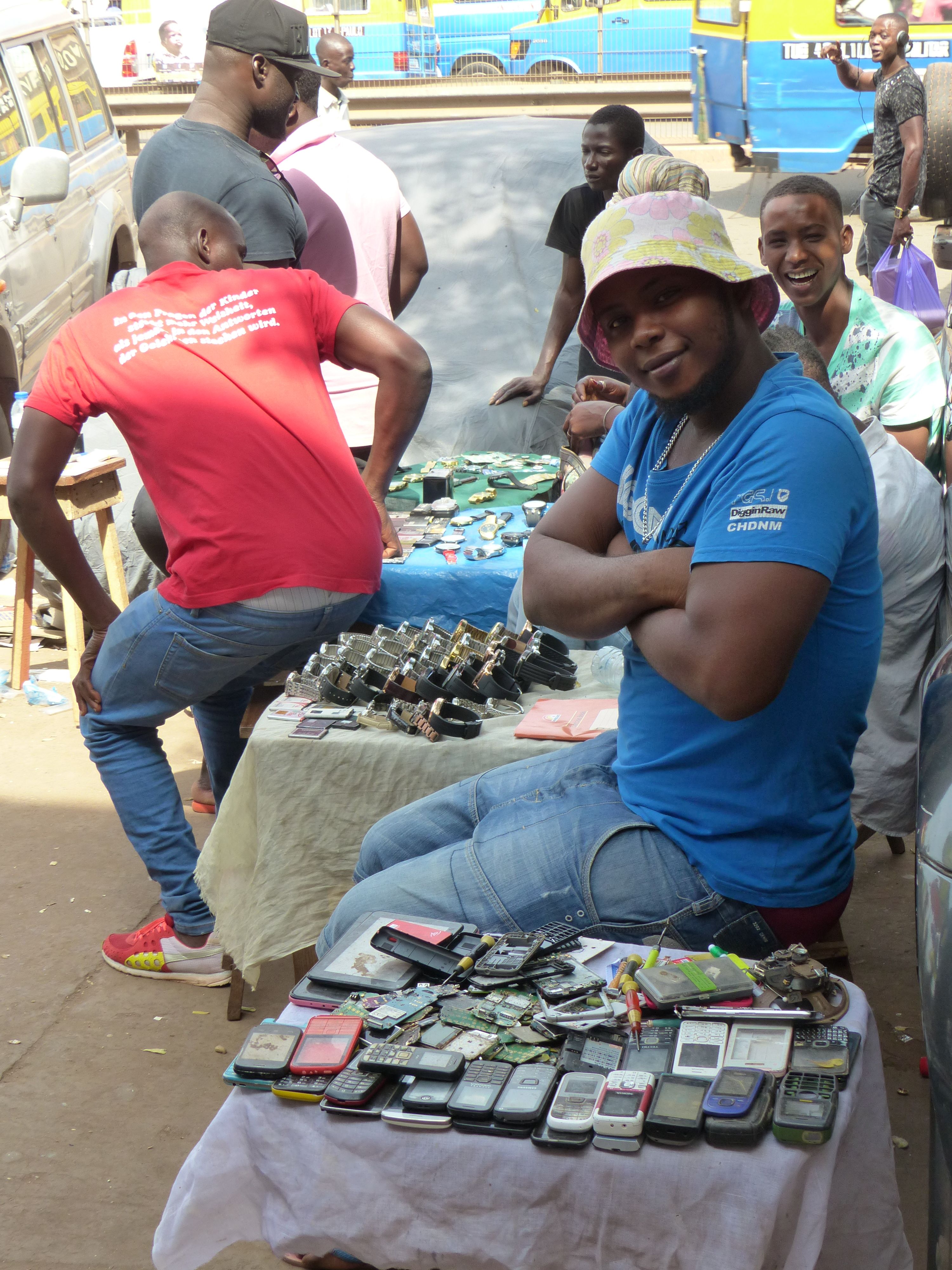
There may not be much to do in Bissau, but you can cross the road without being mown down, and roam the streets in peace and stay in a dingy dive without feeling nervous, and that makes it my new favourite city.
Travel to Guinea-Bissau is not totally straightforward. ATMs won’t accept our cards outside of Bissau or can’t be relied on, so we’d brought cash in both USD and Euro. Quite a bit, in fact:
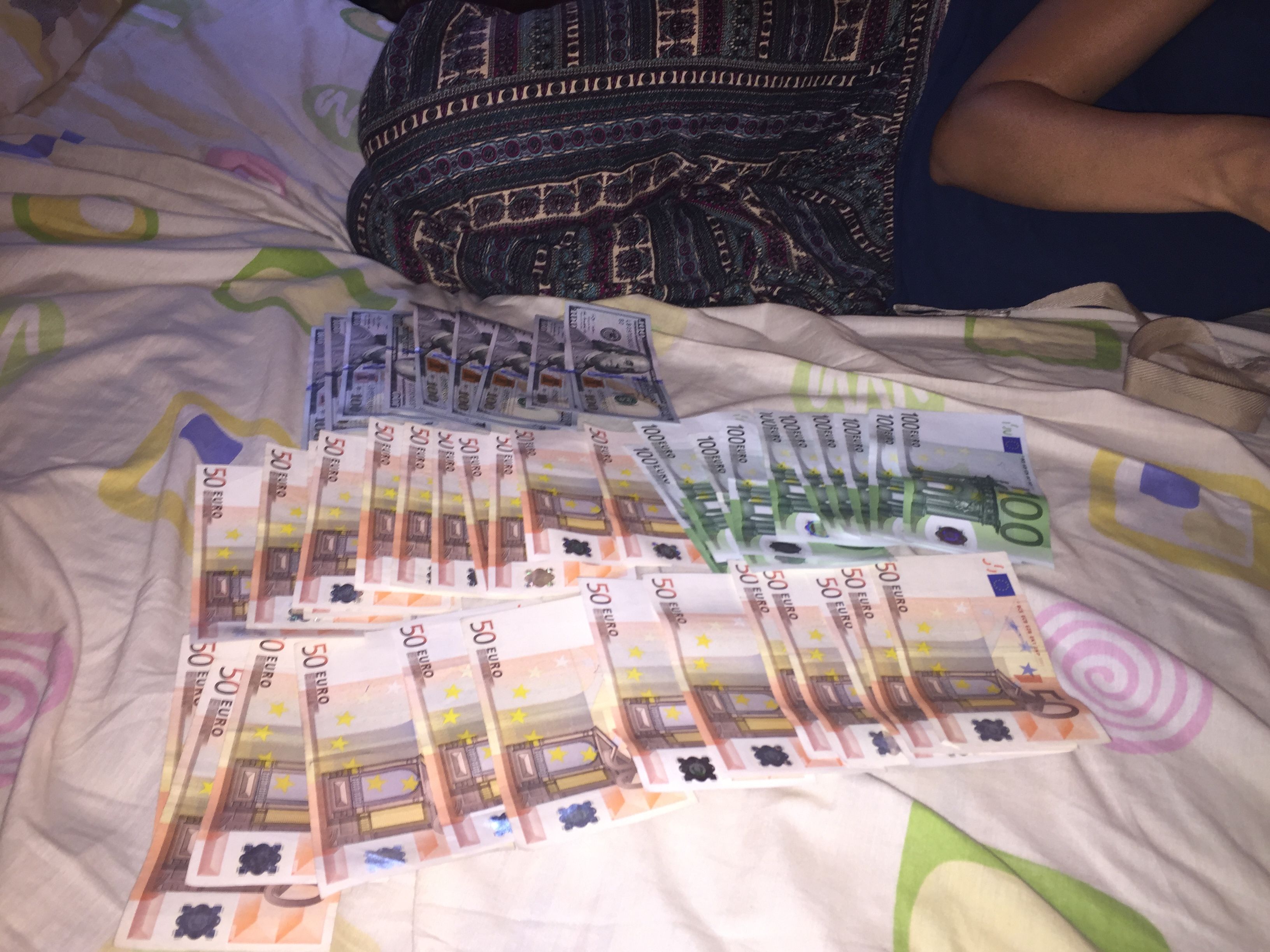
No ATMs means there’s no shortage of black market money-changers wandering around muttering ‘Cambio – Change – Dollars – Euros?’ when we pass by. So we took 1000 Euros from our stash and went for a walk. We huddled with a few money-changers and their interested friends, calculators out. We had too much cash to handle in the street so the lead broker escorted us into a shop selling men’s jeans in big stacks. We arranged the money in piles on the stack of jeans and counted it, shook hands all around and Oyv and I departed with our new thick bundle of local cash.
We needed to figure out how to get to the Bijagos Archipelago, but when we asked the owner at our guesthouse when the public boat goes out to the main island, he answered ‘They don’t know. They should know, but they don’t.’ Our only option was to go to the port and ask around.
On the appointed day we watched from the dock as they loaded the pirogue – a long shallow wooden boat – with sacks of cement, ice, random freight, and a Unicef motorbike.
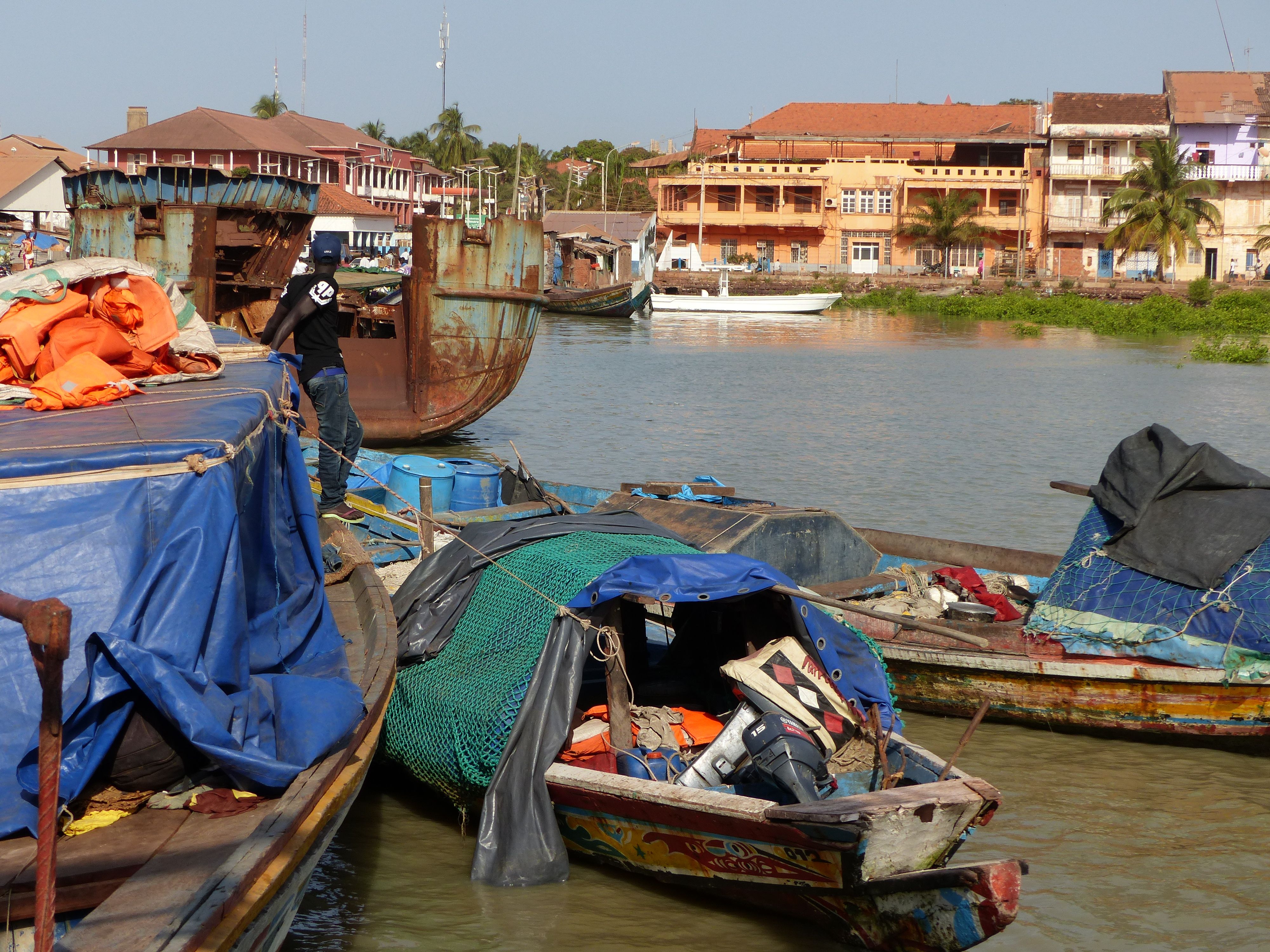
We climbed onto a fishing boat, then clambered onto the roof of the pirogue, wobbled our way forward to the bow and dropped from there to the deck.
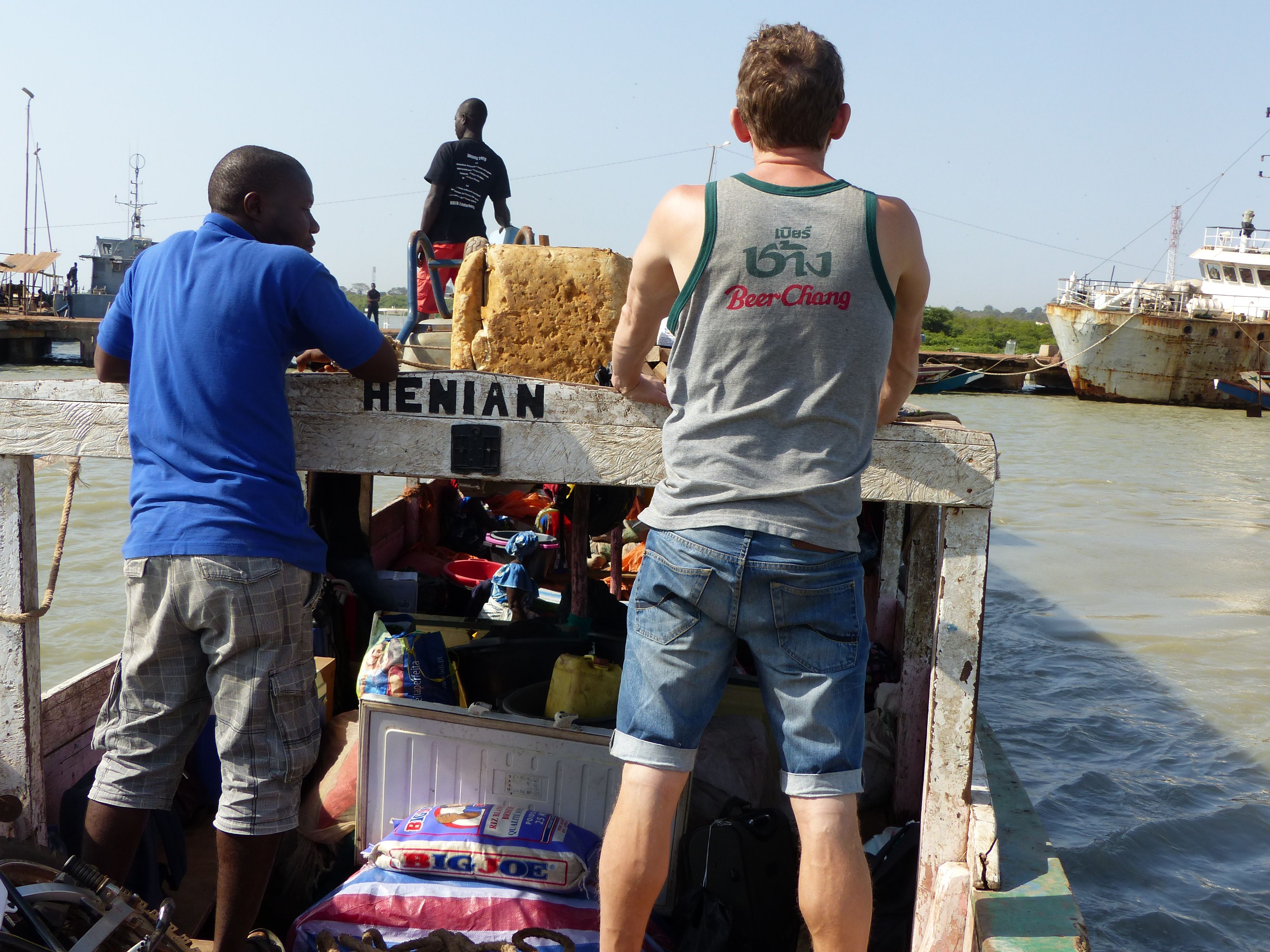
We took our seats: me wedged partially underneath a bag of ice and Oyv perched on top of a sack of oranges.
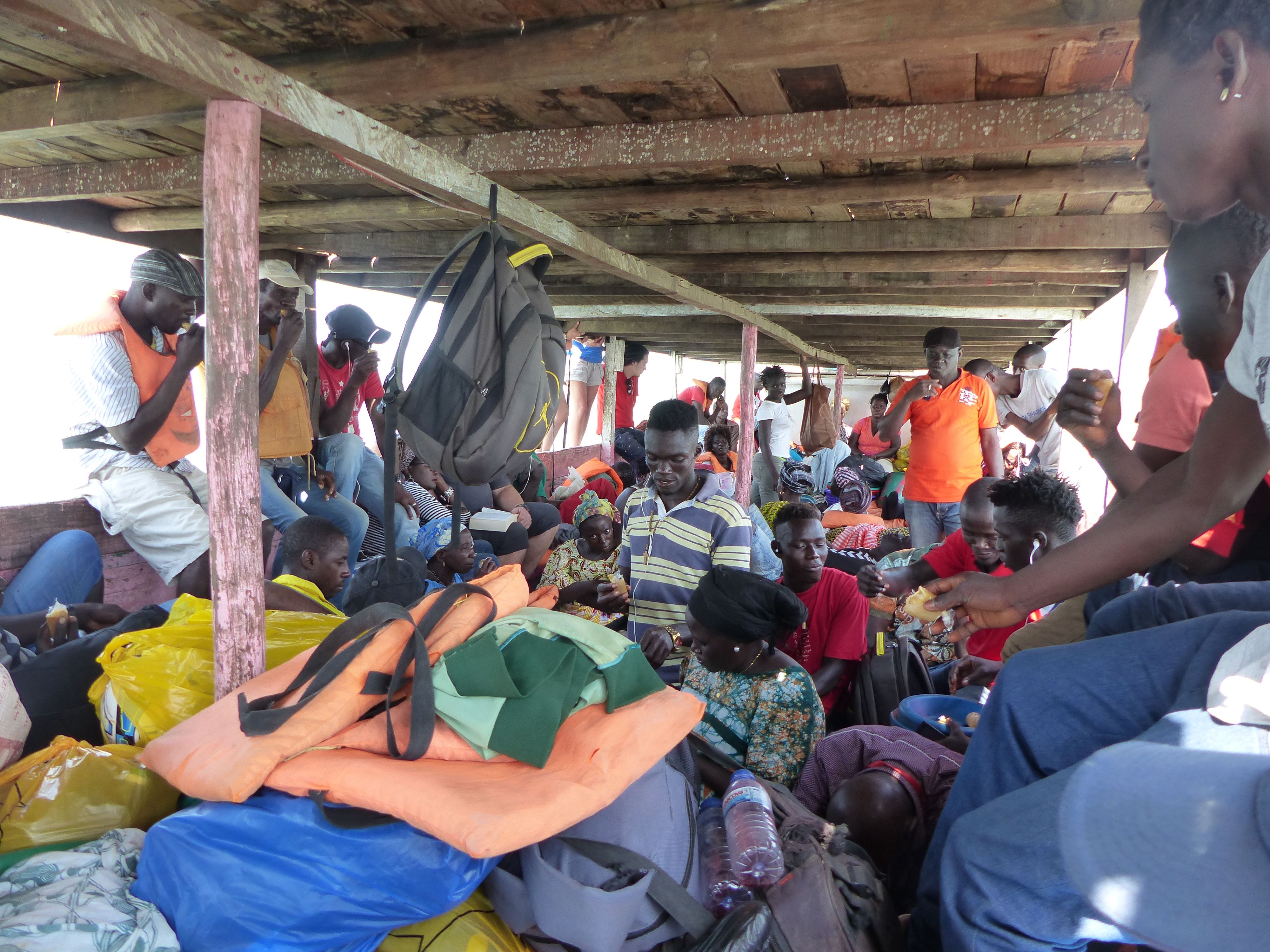
Nearly 5 slow hours later we scaled a rusty barnacle encrusted ladder up onto the dock on the main island, Bubaque.
We’d read about a local place in the village serving, of all things, really good pizza. Since the village was a dusty rubbish-strewn strip lined with shacks, pigs and goats snuffling in the dirt, we were happily surprised when we opened the gate and found ourselves in a quiet beautiful garden overlooking the ocean. This oasis was decorated with strings of shells and wooden beads, and filled with the soft tinkling of wind chimes swinging in the breeze.
We hadn’t eaten since breakfast (a regular occurrence on these long-haul days) and we told the Spanish owner so. He pulled a face and informed us that getting food on the island ‘is complicated’. He’d have some fish by dinner time, he hoped, and he was almost ecstatic over finding 5 tomatoes in the market earlier that day.
T.I.A (This Is Africa) and all that, but hey, we love a good pizza or at least, we love not starving. We stared at each other in mutual horror when we thought of going hungry all night or worse, eating soggy biscuits for dinner.
On the islands, it’s not just tricky to get food – we quickly found out everything is complicated.
That night as we ate our fish at the Spaniard’s, a highly excited villager raced in and accosted our host who ran out the gate brandishing a fire extinguisher – so we jumped up and followed them down the road. The town’s museum was on fire, the only defence some hoses the locals were struggling to hook up and the fire extinguisher, which was exhausted completely after one ineffectual blast. We stood with the villagers and watched the building burn. The passports, documents, money, and worst of all – two months of footage, photos and interviews belonging to some French students making a documentary went up in flames.
We met a UN police officer dealing with drug- and human-trafficking, and some French expats trying to promote responsible tourism. They told us that the President has fired the Prime Minister and the entire Cabinet 5 times in two years – most recently just a few days ago – despite the protests of the international community. Guinea-Bissau has been plagued by one military coup and presidential assassination after another; ruined buildings serve as reminders of devastating conflict, and the fledgling democracy remains ever unstable, neatly highlighted by our guidebook’s casual reference that it’s safe to visit here ‘unless the country has descended into war’. As it is right now, it seems the biggest problem for visitors is the regular blackouts that plunge entire towns into darkness, and the ever-present possibility of falling into a hole in a disintegrating street.
To go the long beach on the other side of the island, we travelled 18 kms through the forest in a trailer attached to a motorcycle, kids running behind screaming ‘Branco, branco!!’ (‘White’, in Portuguese).
We stayed at a wildly overpriced beach camp but …it’s complicated. Nearly everything needs to be imported here, many things shipped in from as far away as Portugal.

It’s beautiful, the most deserted of desert islands I’ve ever seen:
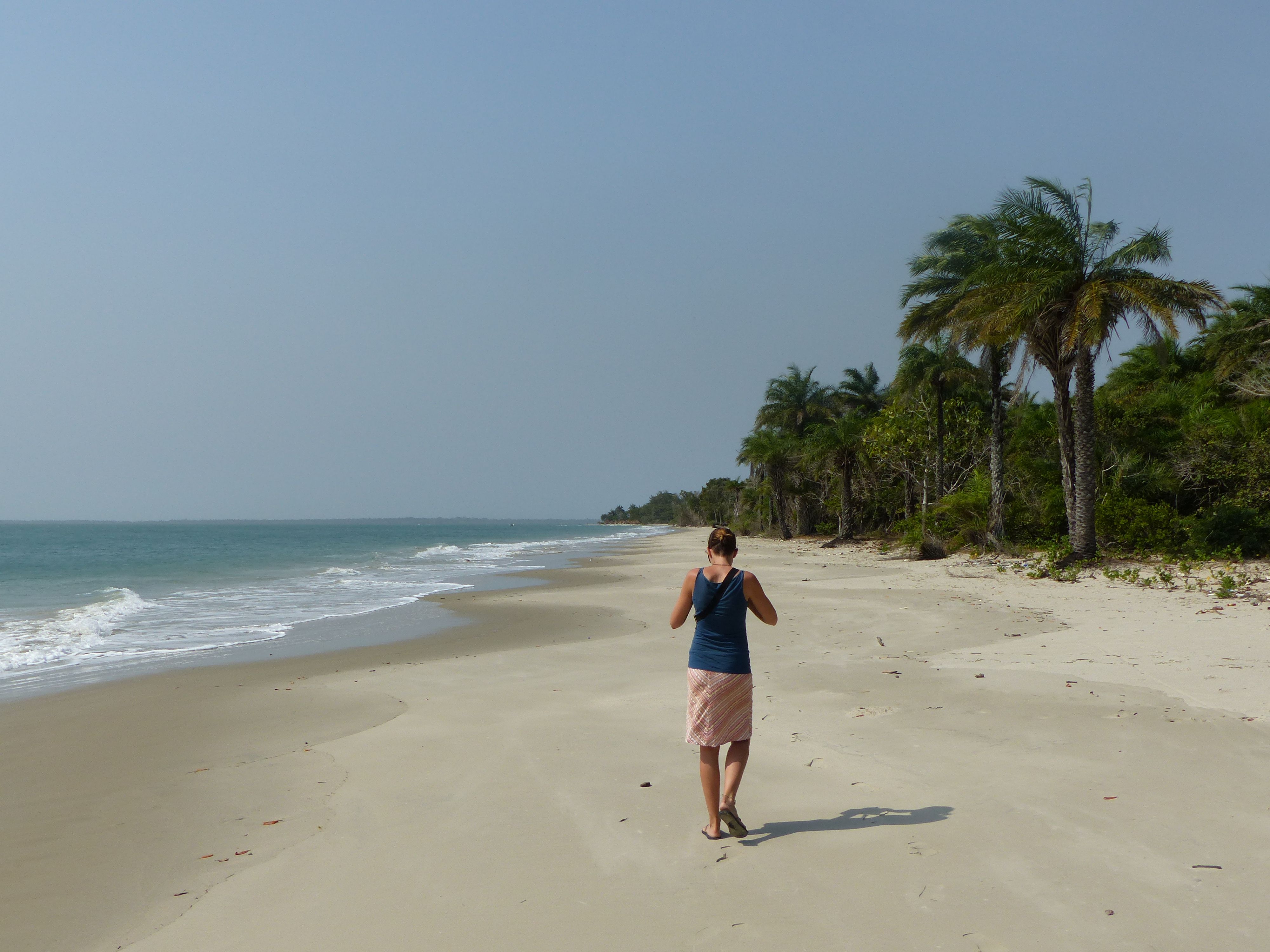
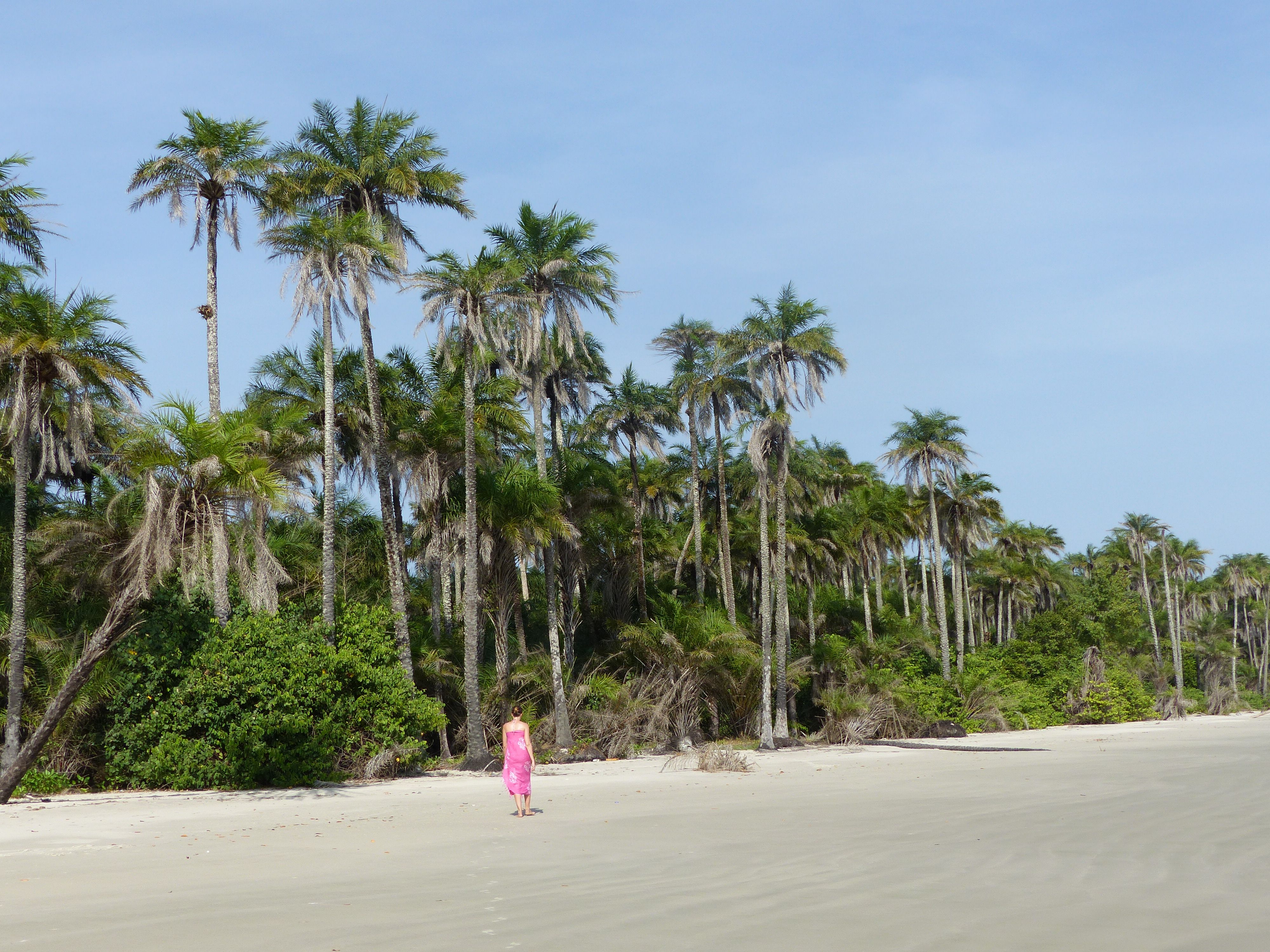
Walking for kilometers up the beach every day we only ran into a few locals and a couple of cows.
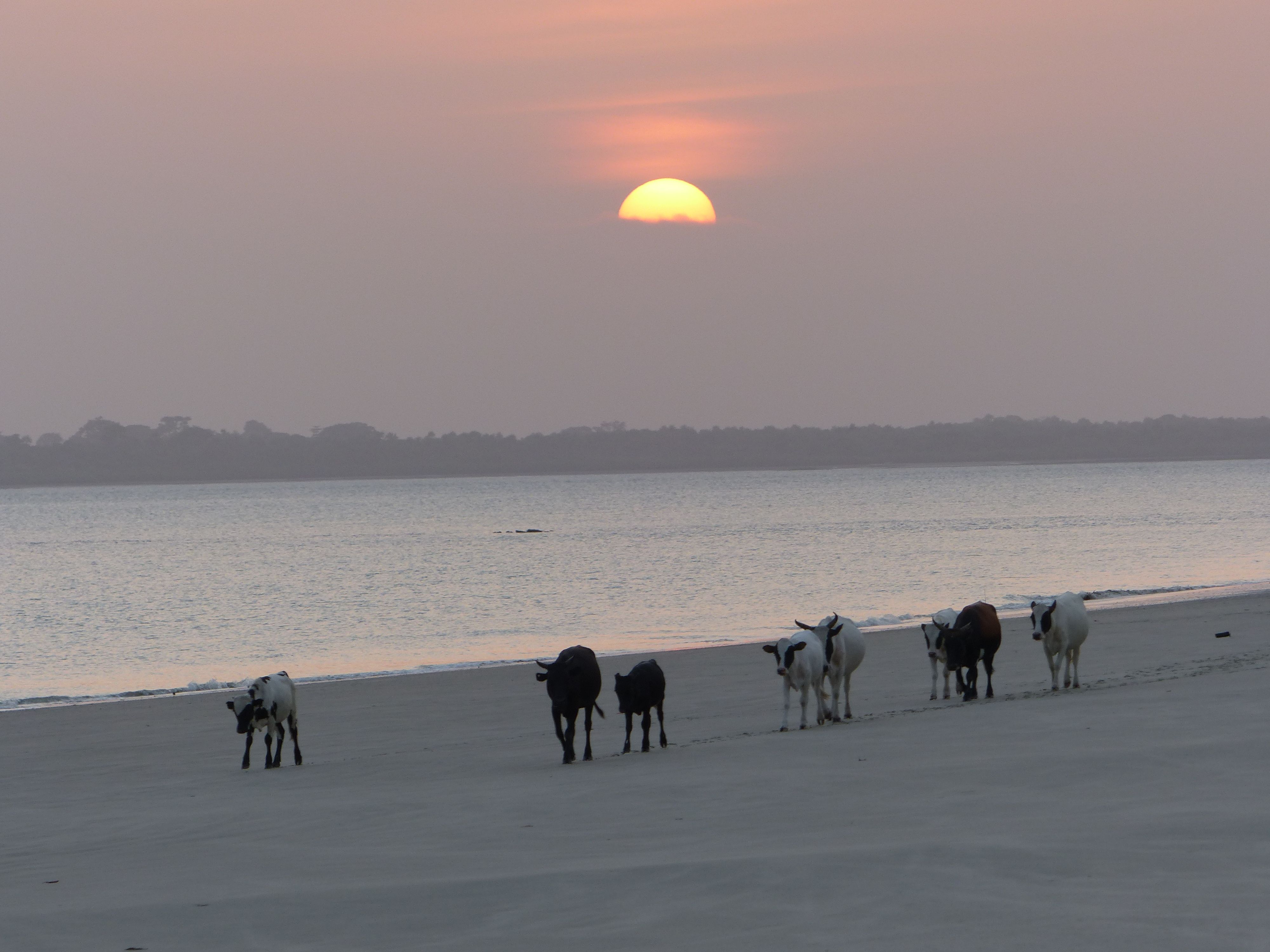
Of course, travelling in this archipelago is complicated so island hopping is not really an option – the public boats run rarely if ever and we lost track of the number of times we heard that a boat doesn’t work, or is broken, or stopped.
We did get to the next island, Rubane, by speedboat. When it was time to go back to the mainland, the hotel sent us by private plane from a dirt airstrip fringed with palms:
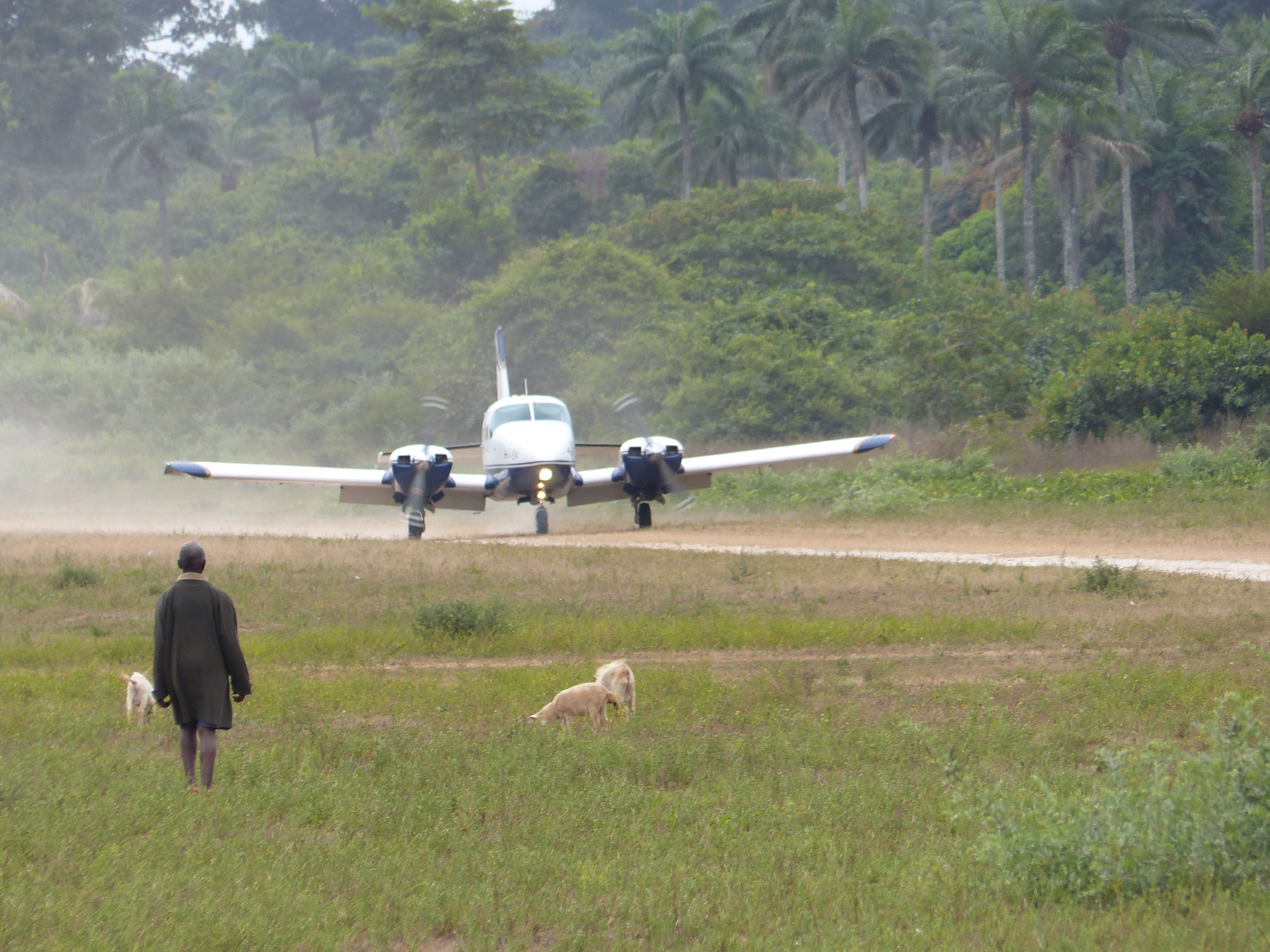
None of this comes cheaply and so the islands don’t tend to draw many backpackers, and the poor infrastructure and lack of development seem to limit tourism all around. For us, that’s fine – we had the beaches and forests to ourselves. For the locals trying to run businesses, it’s another story.
But what is travel without complications; it’s just that much more rewarding when you do arrive at one of West Africa’s best-kept secrets.
Read More
Check out the rest of my stories from the road, for more of our adventures (and misadventures) in Guinea-Bissau and Senegal.
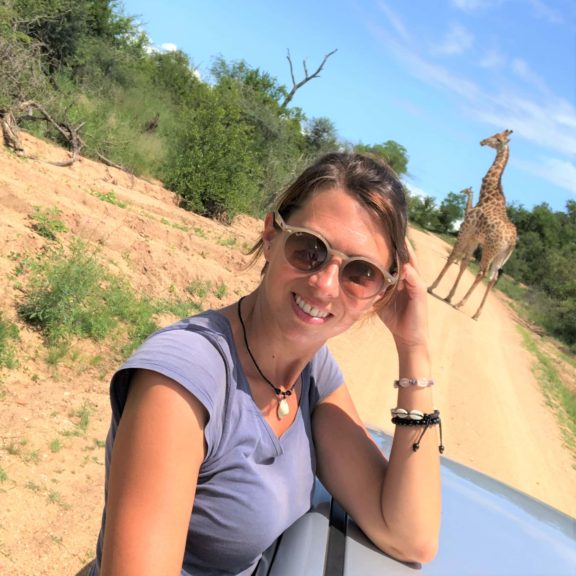
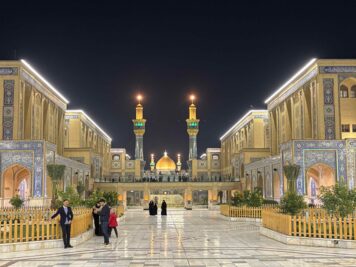
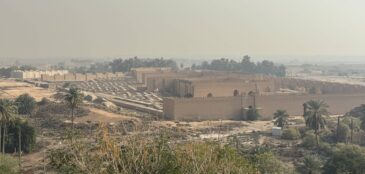
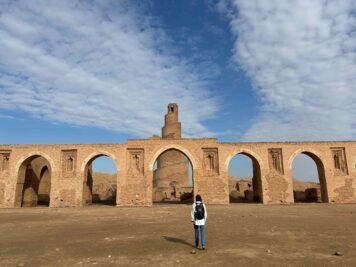
This Post Has 2 Comments
Hi Sarah, nice text. I lived in Guinea-Bissau for four years (2008-2012). Although you were there almost 10 years ago, I’m quite sure things are still the same, apart from a “luxury hotel” inaugurated some time ago in the city center.
Living in Guinea-Bissau was the best thing that has ever happened in my life, I learned a lot about many things which you don’t experience in “normal” countries.
Hi, what a great experience that would have been. I’m pretty sure things are still the same too…have to get back soon and see, I guess:)